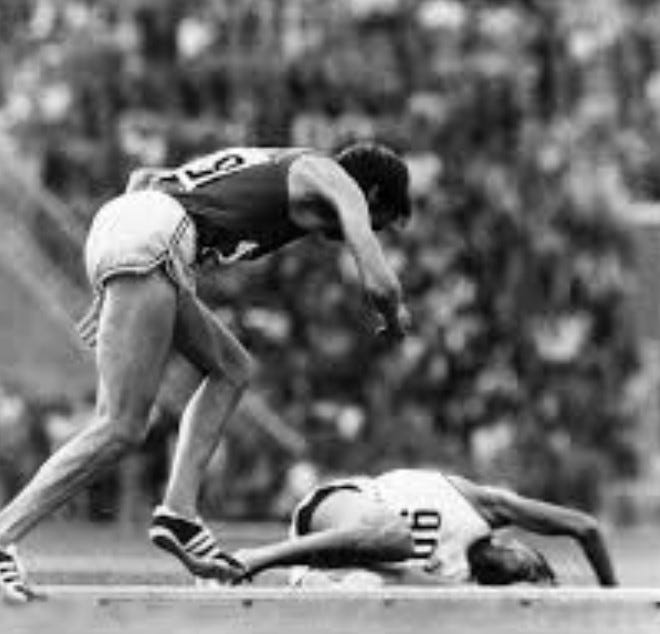The Greatest Olympic Comeback?
Failing Forward
“A strong positive mental attitude will create more miracles than any wonder drug.”
—Patricia Neal
The Greatest Olympic Comeback?
Chasing Influence: Transformational Coaching to Build Champions for Life
What may have seemed like unthinkable comebacks have been made possible through the power of positive mental thinking. In what some believe is the most remarkable comeback of all time, Lasse Virén was running the 10,000m in the 1972 Munich Olympic Games when the 23-year-old Finnish policeman stumbled and fell just before the race's halfway mark. He calmly got back to his feet and ran his way back into the race, to not only win the gold medal, but to do it in world record time. After falling, it would have been easy for Virén to stop running, yet he never gave up the belief in himself that he could still win.
In a growth mindset, one believes challenges are an opportunity to improve through effort and dedication. Studies of elite athletes show they spend the most time on skills they have not yet learned, while sub-elite athletes spend time on skills they can already perform. In the 1950s, Julian Rotter introduced the concept of Locus of Control to describe the degree to which people believe that they, as opposed to external forces outside their influence, have control over the outcome of events in their lives.
Simply put, do you believe your destiny is controlled by yourself or external forces? Studies have shown people with an internal locus of control—those who think they determine their own destiny—are happier and more successful in a wide variety of ways than those who believe their life events are fate.
Conversely, an external locus of control has been associated with the concept of learned helplessness. For example, suppose a slumping athlete continues to perform poorly even after practicing. In that case, the athlete may start to believe that practicing for competition is ineffective and won't impact their performance.
The power of our thinking is amazing. Positive thinking doesn’t always lead to wins, but negative thinking will almost always lead to under-performance.
“When you can’t change the direction of the wind — adjust your sails.”
— H. Jackson Brown, Jr.
Connecting this quote to the story. Lasse Virén's fall during the 10,000m race could have been a setback that he couldn't recover from, but he didn't give up. Instead, he maintained a mindset he could still win and continued to run. We may face unexpected challenges or circumstances that we cannot change in life, but we can choose how we respond to them.
Chasing Influence tip: Embrace challenges with a positive mindset, you just never know what’s possible by not giving up!
If you enjoyed this story, a series of three Chasing Influence workbooks is available. Stories are accompanied by discussion questions and answers. Each workbook contains 33 lessons to use with any team.
Updates on Chasing Influence
Chasing Influence: Transformational Coaching to Build Champions for Life is available in Kindle, softcover, hardcover, and audiobook editions.
For additional resources, links to podcast appearances, and other Chasing Influence news, click here.
©Troy Urdahl, 2024


